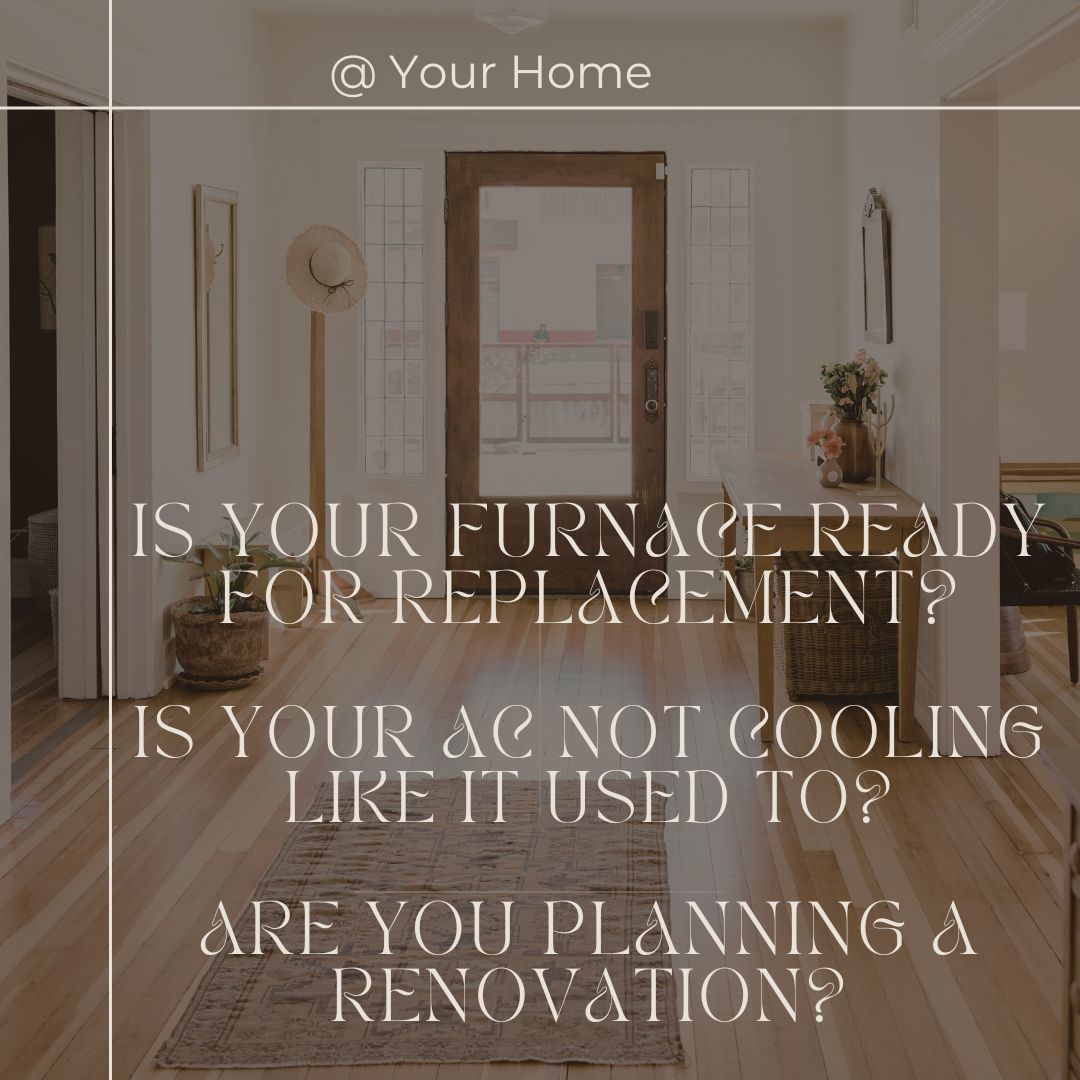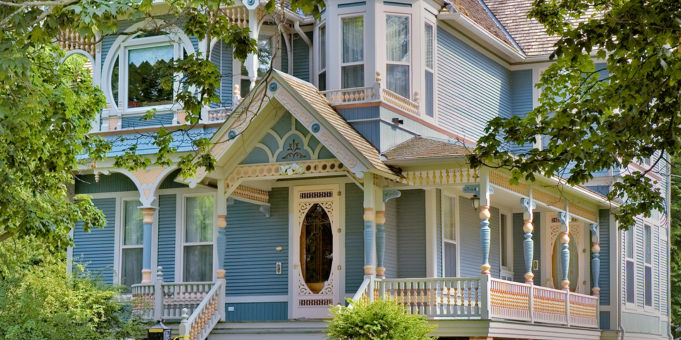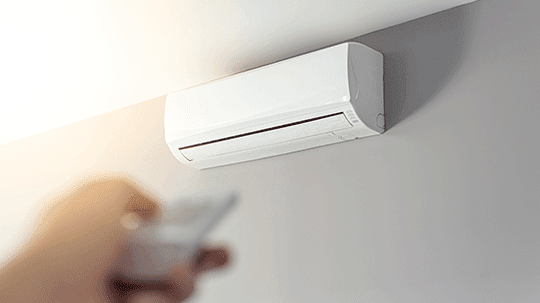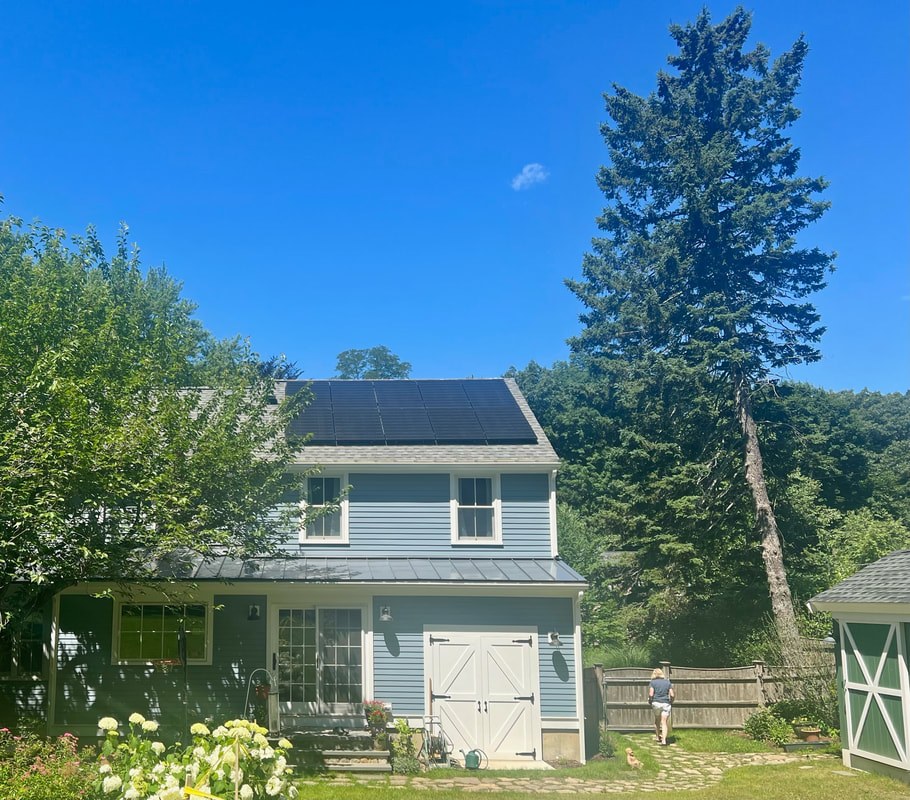|
Now is a great time to consider replacing your existing heating and cooling system before it fails with an air source heat pump because attractive local, state, and federal incentives are available now! Heat pumps are especially economical if you replace oil, propane, or electric baseboard heating.
Take advantage of up to $10,000 in incentives and 0% financing when you replace your aging furnace or AC with an energy-efficient air source heat pump. Register here for a webinar on Thursday, March 21 at 7:00 p.m. via Zoom to learn about the cost savings, cleaner air, and climate benefits of air source heat pumps. Join us at this free event to learn about:
Sign up here here for this webinar co-sponsored by the Town of Wellesley’s Climate Action Committee, Municipal Light Plant, Health Department, and by Sustainable Wellesley. It is the an ideal time to take advantage of local, state, and federal incentives to modernize your home’s heating and cooling with an energy efficient air source heat pump while lessening your exposure to fossil fuel’s volatile pricing and harmful indoor air pollutants. Big thanks to Brian Hodgson - Newton resident & Green Newton board member - for sharing this story.
With all of the crazy weather and news of climate change, a lot of people are looking at how they can make an impact. Ensuring our homes have less of a carbon footprint is one of the biggest actions we can take – namely better insulation, using heat pumps, and installing solar panels on the roof. I am in the middle of a project to install geothermal heat pumps in my home, in part because I care deeply about doing something about climate change. (I’ll share some more information on that project in another article.) I live in a neighborhood of old Victorian homes in Newton, and these older homes certainly present challenges to retrofitting with new technologies. For example, installing air source heat pumps with ducting may require opening up walls, mending old lathe and plaster walls, and pulling out the original heating system with their steam or hot water radiators. However, when I took a walk down my street a couple of weeks ago, I was pleasantly surprised to see that a number of my neighbors had recently installed heat pumps. I was curious as to their motivation: was it driven by a desire to be more climate friendly or were there more practical drivers? To find out, I visited two of my neighbors a couple of weeks ago to ask why. Tanya and David For my neighbors Tanya and David, the key driver was comfort in the home and reducing their electric bills. They had lived without central air conditioning for a number of years, but last summer it was almost intolerably hot in their house. The in-window air conditioners they had been using were noisy and the electricity costs were high. When they learned about the incentives from Mass Save, which can be up to $15,000 to put in heat pumps, they realized it would be a fantastic investment– and it would also improve the comfort of their home. Since air source heat pumps work to both heat and cool a home, they would not need a separate air conditioning system. As part of the incentive process, they were required to get a home energy audit and subsequently had to beef up their home’s insulation levels. Though the base estimated cost of insulation was $8000, over $7000 of that was covered by incentives, and their out of pocket cost was reduced to about $1000. Susan and Michael The second set of neighbors I visited, Susan and Michael, outlined that they had bought the house a couple of years ago and were looking at a number of ways they could make it more energy efficient. While they wanted to make their house less dependent on fossil fuels, attractive financial incentives and comfort in their home were also key drivers in their decision to install a heat pump. As part of their overall evaluation, they looked at a number of options, including upgrading the windows, adding solar, and installing heat pumps. Upgrading the windows turned out to be quite expensive, especially if they wanted to keep the character of the Victorian home, making them hesitate. At the same time, the old air conditioning system they had inherited was on its last legs and would require a large investment for a new one. Thinking ahead to the future, it made more sense to replace it with a heat pump system that could give them both heating and cooling instead of installing another air conditioning system. This reasoning, plus the great financial incentives, made installing a heat pump a great first step in their overall energy renovation plan. Comfort and Saving Money are Key Motivators The $15,000 rebate offered by Mass Save, along with an interest free loan, were critical in getting both families over the hump. Tanya said, “With the interest free loan– we pay $200 a month–it’s almost free money.” In addition, they will also continue to benefit from lower heating and cooling costs through the life of the system. So, while we all have a desire to make an impact on climate change and reduce our carbon footprint, the more practical needs of comfort and saving money are often the reasons why people make the decision to change to heat pumps. Either way, it’s a win-win for everyone. If you are interested in learning more about getting a heat pump for your home click here. Not sure where to start? Contact a no cost Wellesley Energy Coach today. You don't need to really celebrate Energy Star's 'holiday', but we want you to be aware of the savings potential out there when you switch to an ENERGY STAR® certified heat pump water heater.
Heat pump technology is high-performing and super-efficient, so you’ll save on lower utility bills. Energy Star says "a family of four can save up to $550 annually and more than $5,600 over the product’s lifetime. Add tax credits of up to $2,000 and available utility rebates and the payback is almost instantaneous."* information from Energy Star Program If you currently have an old electric resistance water heater, you are just throwing away money on energy bills every month. If you have a gas water heater, just think how making the switch will help contribute to a clean energy future. Email info@SustainableWellesley for more information. The team at Green Energy Consumers is offering advice on heat pumps, electric cars, and more at their upcoming webinars. For specific Wellesley information (rebates, assistance, etc. watch this first).
We realize it's the summer and ironically we are talking about ice dams. Many of us have unfortunately experienced them, including Teri and Jamie Ebersole here in Wellesley. Over the last several years, they did piecemeal projects to protect themselves from recurring ice dam damage. However the dams highlighted to them the increasing severe weather due to climate change. Thus, when they decided to renovate their kitchen, they took a hard look at the resiliency of their home. In the end, they spent a fair amount of their renovation budget on aspects of their home that will make their family home more resilient.
What does that mean? Climate resilient buildings are built, or retrofitted, to withstand severe storms and natural disasters. The Ebersoles wanted their 1940 colonial – gone farmhouse – home to withstand extreme weather. They interviewed a few architects and builders and went with Wellesley’s Kraus Associates. After much research, and discussions with Abode and other energy efficiency experts, the Ebersoles now have a beautiful renovated, healthy and resilient home they are proud of. This all turned out to be a valuable investment as well. The last 2 months they have only paid $10 a month for all of their electric cooking, heating/cooling, driving, laundry needs! How are they doing this? They moved to electrical, high efficient systems, and fully insulated and weatherized their home:
They still have their gas-fired tankless water heater, since it was newish at the time of renovation, but that is the only gas in their home. They will likely replace it with an electric air-source heat pump water heater at its end of life. Since they have a family member with lung challenges, they are very happy to minimize the amount of unhealthy natural gas in their home. “We love our house and want to stay here a long time, so it made sense to make it healthy, resilient and sustainable for the long-term.” Curious who they used? See below:
|
Categories
All
|
Sign up for updates! |
Contact |
Support us! |
Follow us!Copyright © 2024 By Sustainable Wellesley
|






 RSS Feed
RSS Feed